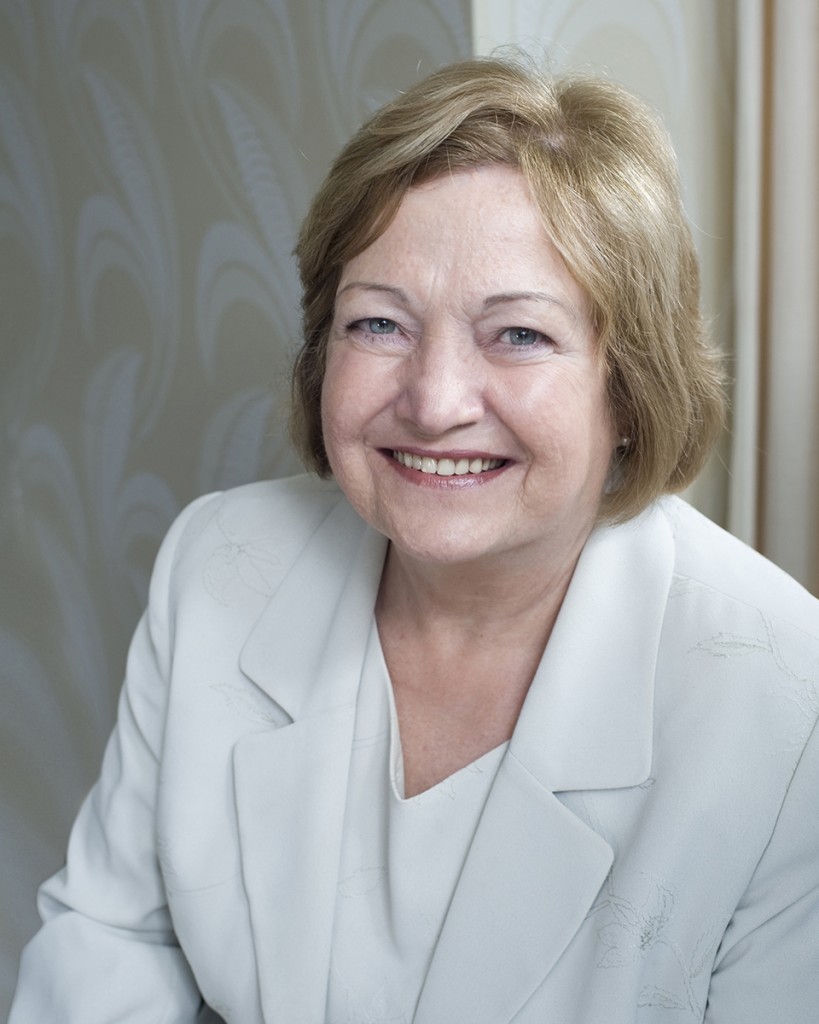No Manʼs Land: Women Plan Peace March Across Koreaʼs DMZ

The following article was written by Mairead Maguire, who was awarded the 1976 Nobel Peace Prize for her extraordinary actions to help end the deep ethnic/political conflict in her native Northern Ireland. Maguire, along with around 30 international female activists, plans to march from the North to the South across the Demilitarized Zone (DMZ) to mark International Womenʼs Day for Peace and Disarmament on May 24.
On May 24, 2015, which is International Women’s Day for Peace and Disarmament, 30 women peacemakers from 15 countries plan to walk across the Demilitarized Zone (DMZ) that separates North and South Korea. This will be an important first step in establishing a peace process and supporting Koreans who are working towards reconciliation and hoping to reunite their families.
Some of the women who will be participating in this historic walk with me are Nobel Peace Prize laureate Leymah Gbowee, feminist author Gloria Steinem, retired U.S. Army Colonel Ann Wright, Suzuyo Takazato from Okinawa Women Act Against Military Violence, and American filmmaker Abigail Disney.
The government of North Korea has agreed to support the walk, as has the South Korean government, who recently sent us a letter stating they are willing to “render necessary cooperation.” Paperwork is currently being processed, and we are now awaiting final confirmation from the United Nations Command at the DMZ.
In many countries around the world, women are walking and calling for demilitarization and an end to war. As the DMZ is the most highly militarized border in the world, women peacemakers believe it is only right that they should walk there in solidarity with their Korean sisters, who want to see an end to the 70-year-old conflict and reunite millions of Korean families.
Seventy years ago, as the Cold War was being waged, the United States drew a line across the 38th parallel – later with the former Soviet Union’s agreement – dividing an ancient country that had just suffered 35 years of Japanese colonial occupation. Koreans had no desire for their country to be divided, but had no say in the matter.
Now, seven decades later, the conflict on the Korean peninsula threatens peace in the Asia Pacific and throughout the world.
In Korean culture, family relations are deeply important, and millions of families have been painfully separated for 70 years. Although there was a period of reconciliation during the Sunshine Policy years between the two Korean governments in which many families had the joy of reunion, the vast majority of families remain separated. Many elders have sadly died without ever seeing their families reunited.
North Korea’s economy has also suffered greatly due to Western sanctions and isolationist policies. While the country has come a long way since the 1990s, when hundreds of thousands – and possibly even millions – died from famine, many people are still very poor and lack the basics for survival.
During a visit to Seoul in 2007, an aid worker told me that most people in South Korea would love to pack their car with food and drive an hour up the road into North Korea to help their Korean brothers and sisters if the governments would agree to open the DMZ and let them cross over to see each other.
The DMZ, with its barbed wire, armed soldiers on both sides, and thousands of explosive landmines, is a tragic physical manifestation of how much the Korean people have suffered and lost in war. Yet, from all my encounters with the Korean people, it seems all they wish for is to be reconciled and live in peace with each other.
On May 24, we want to walk for peace in North and South Korea, and hope that all governments will support our crossing of the DMZ, recognizing that we are doing this because we care for our Korean brothers and sisters. We want to plant a seed showing that Koreans, too, should be free to cross the DMZ in their work towards reconciliation, putting an end to the division and fear that keep them in a state of war.
This article was provided to the Budapest Business Journal by The MarkNews.
SUPPORT THE BUDAPEST BUSINESS JOURNAL
Producing journalism that is worthy of the name is a costly business. For 27 years, the publishers, editors and reporters of the Budapest Business Journal have striven to bring you business news that works, information that you can trust, that is factual, accurate and presented without fear or favor.
Newspaper organizations across the globe have struggled to find a business model that allows them to continue to excel, without compromising their ability to perform. Most recently, some have experimented with the idea of involving their most important stakeholders, their readers.
We would like to offer that same opportunity to our readers. We would like to invite you to help us deliver the quality business journalism you require. Hit our Support the BBJ button and you can choose the how much and how often you send us your contributions.








